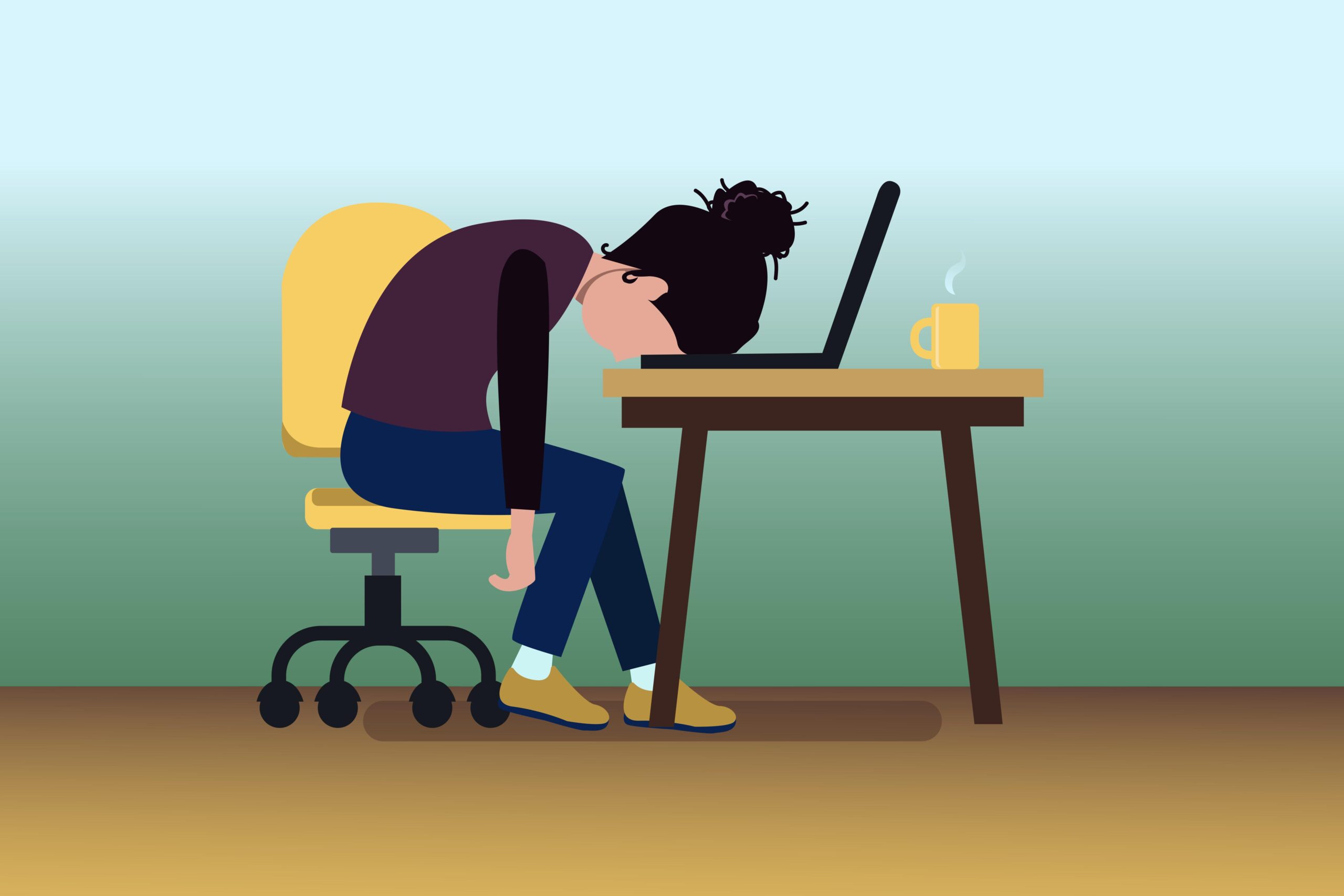
Student Burnout | Graphic by Grace Merkle | The Wright State Guardian
As Fall 2021 midterms finally come to a close, many students are experiencing the dreaded feelings of academic burnout.
Dr. Sarah Peters, staff therapist at Counseling and Wellness Services (CWS), defines burnout as feeling like one is unable to make themself care about something even though they know it is important.
“Out of the Gen Z adults who said they are in college, 87% said their education was a significant source of stress, and stress is often linked to burnout,” according to The Hechinger Report.
WSU students are no exception to this trend.
Student experience
Alex Bunsold, a sophomore motion pictures major, has experienced burnout in both his high school days and at WSU.
“I would also compare it to being like a more exaggerated version of being bored,” Bunsold said.
A common symptom of burnout is decreased satisfaction and sense of accomplishment as Bunsold describes. Bunsold also included that the environment of the pandemic as being a major contributing factor to his burnout.
Abigail Bond is a TESOL and International Studies double major that has also experienced academic burnout during the time of the COVID-19 pandemic.
“My symptoms are that I lose motivation and always want to sleep instead of going to school or work,” Bond said.
Loss of motivation is a common symptom of burnout that Bond and many other students experience.
Midterms and finals season is often the most stressful time of year for college students, resulting in some of the highest rates of burnout.
“I think burnout is the worst half-way through [the semester] because you don’t see the end in sight yet, but the excitement from the new semester has also vanished,” Bond said.
Burn out can make students act differently towards others than they normally would.
“They may have a hard time feeling empathy for others and be more irritable than usual. In the context of academics specifically, we might see behaviors such as not completing assignments, turning in lower-quality work than you typically would, skipping class, etc.,” Dr. Peters said.
There are multiple ways to help minimize the symptoms of burnout.
Counseling and Wellness office
As a staff member of CWS, Dr. Peters recommends students try journaling, using a mood tracker app and talking with friends about how they are feeling.
CWS offers individual and group therapy, life coaching, helpful videos on various mental health topics and more to help students through burn out.
Raider Cares is a 24-hour crisis phone service staffed by off-site mental health professionals. Students are welcomed and encouraged to call at 937-775-4567.
Students can find more information about the CWS office at http://www.wright.edu/cws.
“Remember that you are not alone, and asking for help is a sign of strength and determination,” Dr. Peters said.
